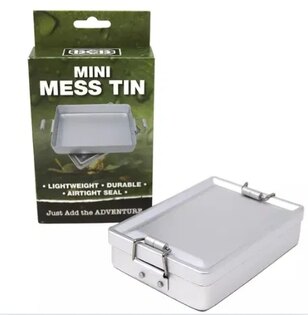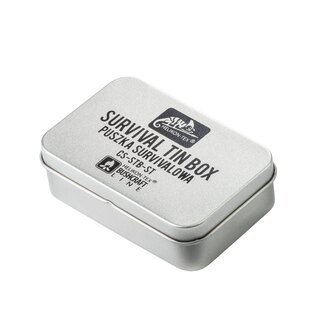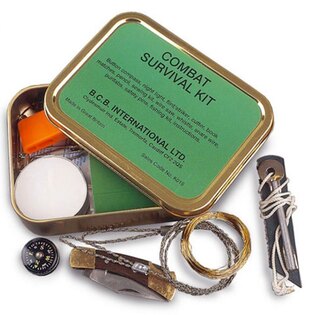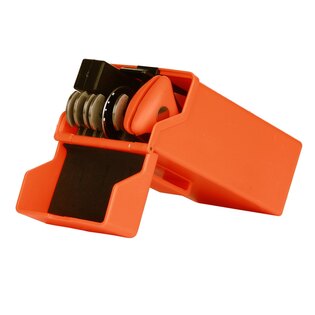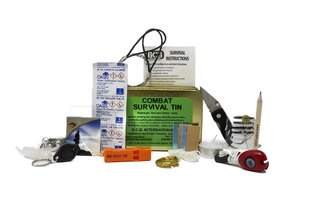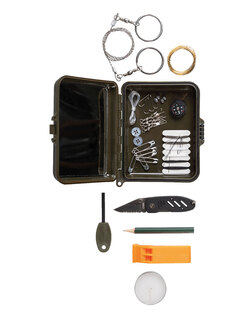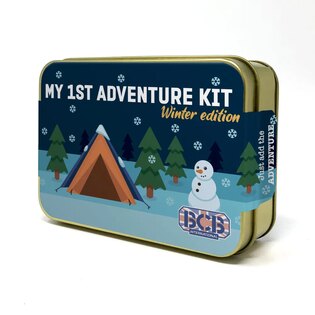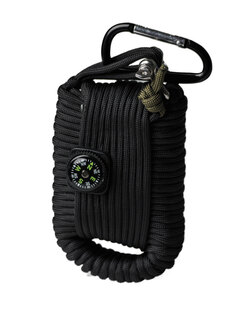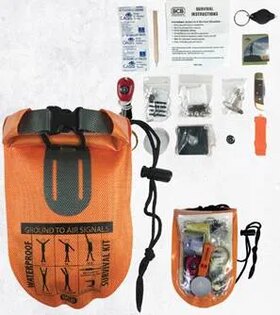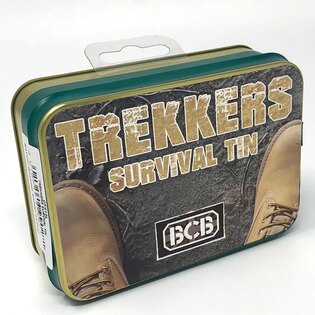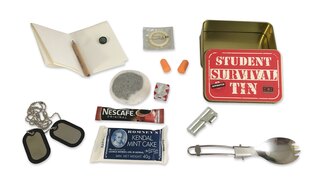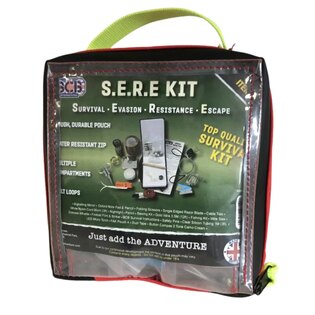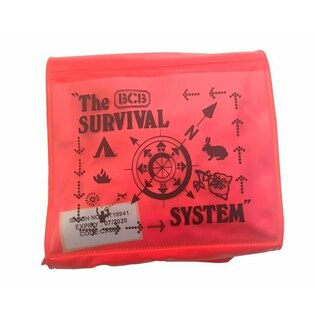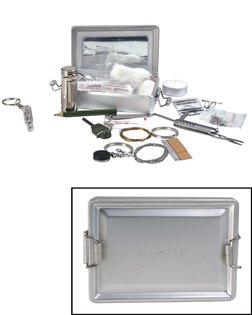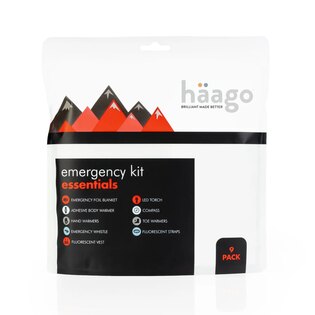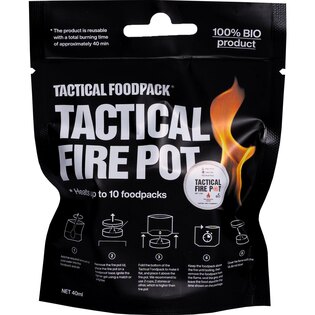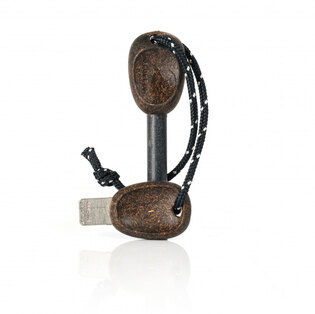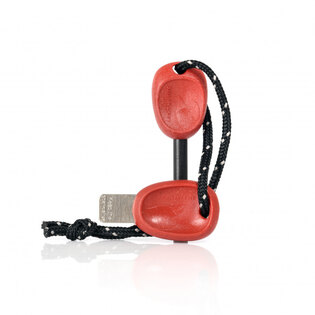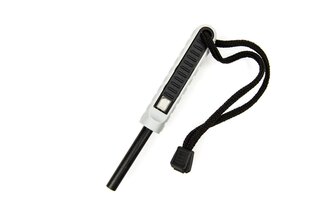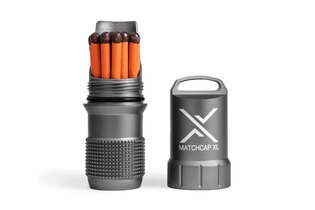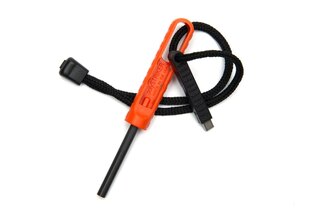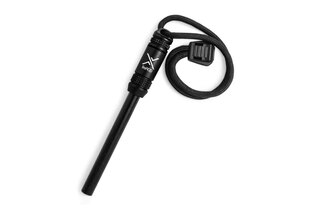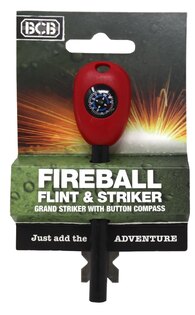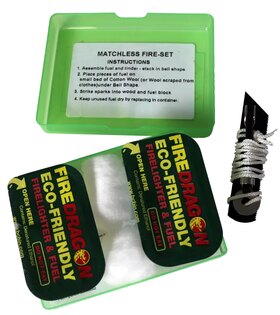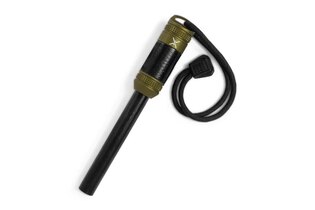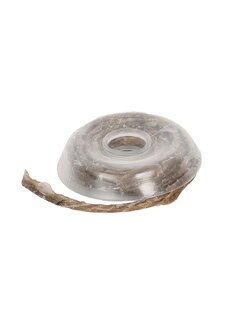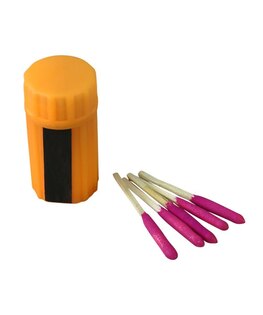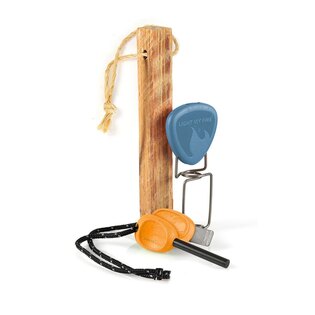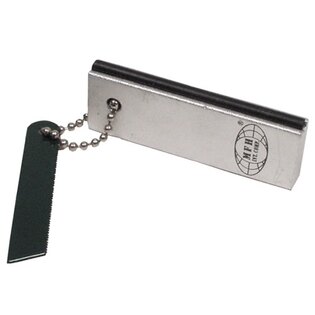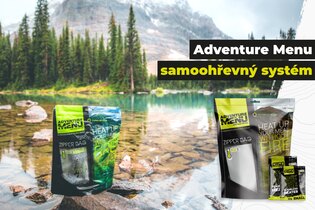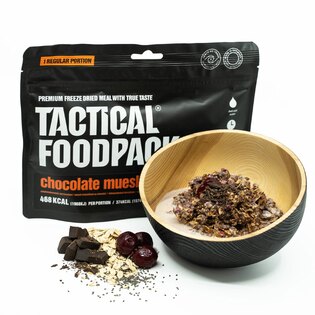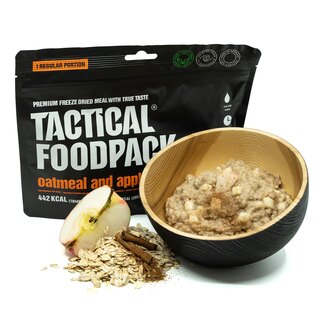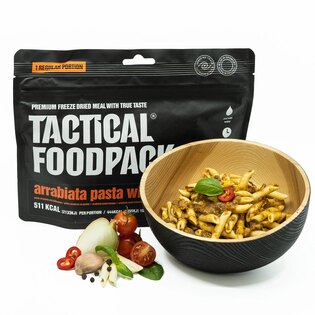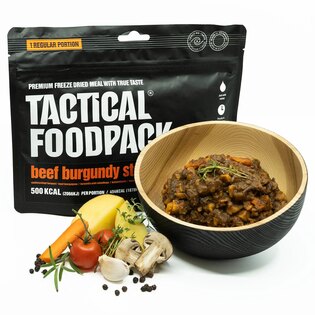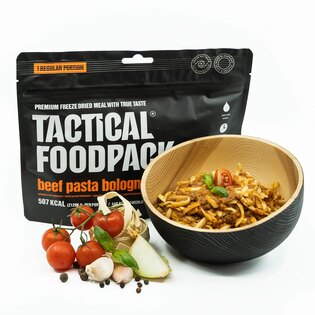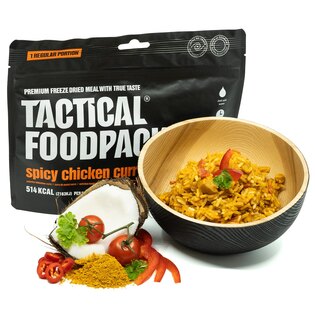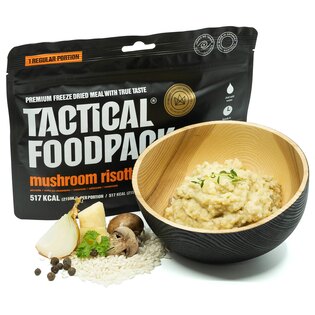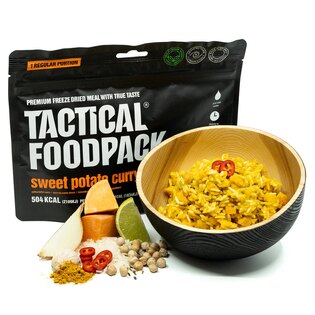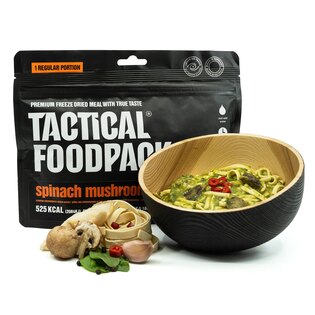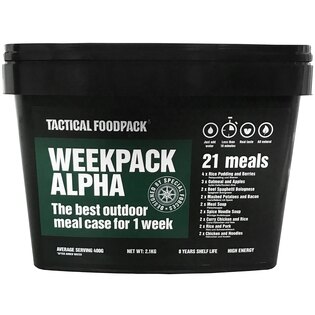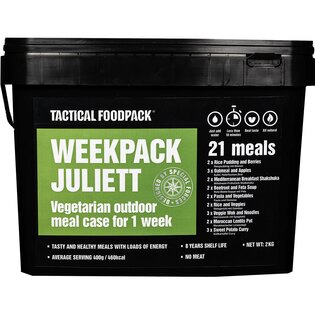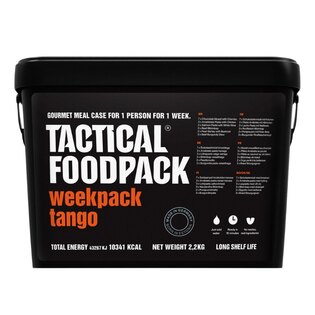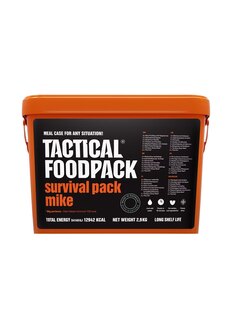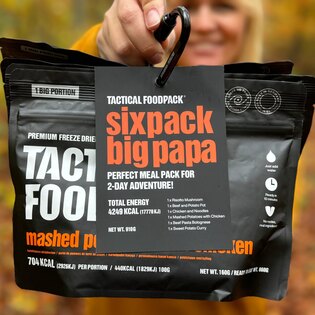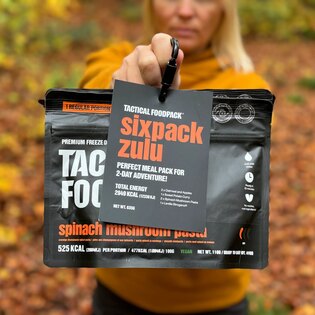10 survival and preppers’ myths you’d better not believe
It's not important what we call them: nonsense, rumours, rubbish, urban legends, ... Similar information may be called in many ways. Information about some survival technique, as well as the survival technique itself (for whatever reason), which is clearly wrong and incorrect, that can easily be disproved with arguments, but many of them still exist among both "preppers" and "survivalists."
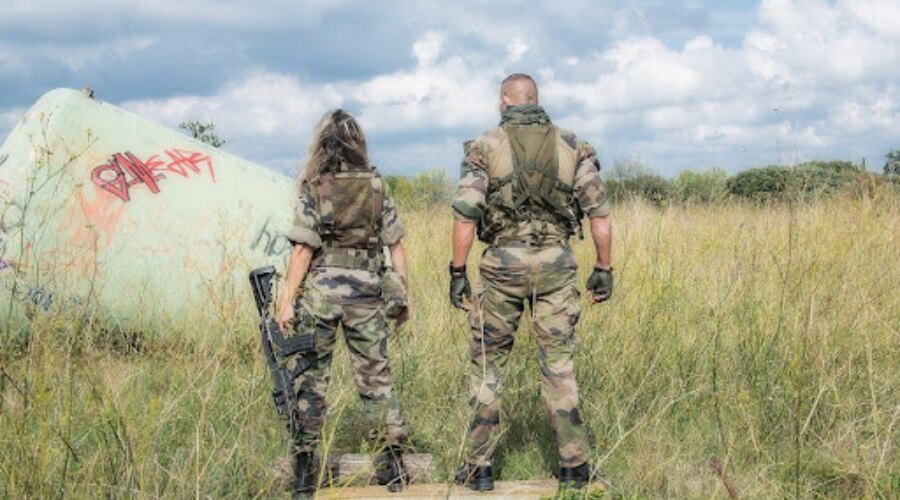
It's not important what we call them: nonsense, rumours, rubbish, urban legends, ... Similar information may be called in many ways. Information about some survival technique, as well as the survival technique itself (for whatever reason), which is clearly wrong and incorrect, that can easily be disproved with arguments, but many of them still exist among both "preppers" and "survivalists."
Maybe it’s tradition. Many times a myth becomes general knowledge thanks to the popular culture and survival shows on TV. But it's never based on reality. Maybe it's just an opinion of somebody from your social group or a friend. Nevertheless, if they believe it, you need to be the smarter one and be open to all reasons. The biggest experts in prepping and survival are usually those, who think about it the least time, but have the most weapons. This is how it usually is. The real prepper/survivalist would never spread such nonsense.
So, it doesn’t matter how much some people want for these preppers’/survivalists’ myths to be true. Moreover, betting your life on them in real life may not pay off when shit hits the fan. The brutality of real life will simply not make that happen.
There are people out there who base their entire careers on these myths teaching them to survivalist rookies, which is really sad. Nevertheless, it’s one thing to trick a naive guy wanting to learn fancy stuff, yet tricking the nature, woods, mountains or life is a completely different story.
The list of preppers’/survival myths below is not ranked in order based on their importance, as the order is not really important today. There are a number of things which are considered the so called “preppers’ and survivalists’ elementary school”. Many people even take them as their own ten commandments of bushcraft. But as you will see soon enough, nothing is farther from the truth.
As usual, there are always slight statistical errors from a rule or statistics. It is probably no coincidence that the proverb "Exception confirms the rule" is applicable here as well. But we certainly do not want you to accept our opinions as the only correct ones! Our goal is to initiate in you a mental discussion to make sure you will sort it all out yourself.
Every good prepper and survivalist ought to keep an open mind because this topic is so broad that even the best of us are still learning something new even at retirement age. And the same goes for our skills.
You might as well be so good or talented at something that these rules will not apply to you. And that's fine too. Nevertheless, the fact that you belong to the 0.02% minority doesn’t mean the rules are not applicable to the rest of the population. Even if you were faster than a grizzly bear or Usain Bolt, you need to understand that the majority of people are not.
1. Living off the land and forest is always a sure plan
This is a big thing (perhaps the biggest) that dwells in the minds of many enthusiastic yet naive preppers and survivalists. Their idea is, simply speaking, that if something happened (“SHTF”), all they have to do is take a fire starter, axe and a shotgun and head for the woods/endless plains and live here happily and in abundance in their cabin/cosy shelter without breaking a sweat until the world gets back to normal. This all in a warm bed with their bellies stuffed. As idyllic as this idea might be, it will only be available to an incredibly small percentage of people who possess incredible hunting skills on the one hand and are incredibly harsh on the other to withstand such an environment. Long gone are the days when forests and plains were literally full with small and large game. And even if they were, animals have far better senses than humans, so catching them requires time, resources, and truly perfect hunting skills. As well as a lot of practice and a good portion of luck.
And what’s more, this applies when you use for the hunting modern weapons and tools. If you wanted to do it with primitive, basic weapons, it will obviously get a notch harder (even today there are extra-hardcore hunters who hunt for bear or boar using only a modern spear, for example the one by Cold Steel). Of course, these are not skills you could practice in the Czech Republic in any way, as everything mentioned above violates at least 13 laws. Not to mention the fact that it's completely inhumane and against all hunters’ ethics to practice on suffering animals.
Likewise, the demands for a shelter will be high too - you will have to go for something much smaller and less cozy. The equipment itself for building a yurta or teepee will weigh at least a hundred kilograms (including stove, clothes, all the tools etc., you need to transport without a horse or car). If you don’t acquire a tent or build some of the shelters mentioned above, you will probably have to survive with a simple “lean-to”, mattress or a sleeping mat, which are still far less comfortable options than the worst wooden cabin.
Above all, you always need to bear in mind the requirements for your energy and budget. Any activity (useful or not) will burn calories. Most of us would survive a few weeks, after all, most modern people have decent deposits of fat, but even those would quickly disappear. But check this out - all similar demanding outdoor activities (thanks to which you would burn about 2-3 times as many calories a day as now) require one thing: food! Most people will have to rely on food they have at hand.
If you expect to thrive on edible plants, berries and wild thistles, it’s sort of possible, but of course, only for a certain part of the year and requires from you not just excellent, but literally encyclopaedic knowledge of the local fauna and flora. You must know not only when and how to collect the plants, but also how to store them to sustain you through the winter. Eating everything without proper knowledge may cost you your life. The majority of plants don’t have many nutrients. Some have quite a lot of protein (e.g. nettle), but the best food are plant fruits (seeds, nuts,…). The real survival has nothing to do with leisure-time camping, it's a harsh calorie math, not to mention the fact that you'd have to consistently eat rather disgusting things - most wild game and other animals have mainly protein in their muscles while fat is in their organs, so you'd have to eat all the guts (even brain and bone marrow) + soups from fatty animal skin (without spices), mushroom soup without spices, etc. Try cooking these meals sometimes and you will see what I’m talking about.
2. It's easy to start a fire with no tools
Starting a fire in your home environment or at your summer house is easy when you have the right equipment, tools as well as the fuel. Taking good care of a fire is also something that requires a little training, which modern civilization usually lacks. You need to squeeze as much as possible out of your fuel, as for example firewood is quite heavy, much like water, and you need to use every last bit of it.
It may so appear that it's easy to set wood on fire when you’re by your fire place, but try removing some of the essential things (stove, matches / fire starter / lighter, dry firewood, …) and the whole process will get to a whole new level.
Even if it looks different on TV, making a fire with just a few sticks, maybe some paracord and a wooden board is much more demanding and exhausting than you have imagined, even in conditions that are otherwise ideal (dry, no wind, …). It is a process that burns a lot of calories and can take up to several hours when the firewood is just a little wet. Even a small drop in your focus (which will come for sure, because you are most-likely undernourished, low on sugar, no vitamins), a small decrease in effort or poor technique will result in nothing but a lot of smoke and no flame.
Now imagine you're doing the same in the dark after a 30km bug-out, injured and cold. The bets will then get ever higher. Even the cheapest lighter or matches will at the moment have much higher value than a brick of gold. The sun is merciless and will vanish behind the horizon whether we like it or not.
Only the most experienced survivalists and preppers may start a fire by rubbing wooden sticks. When they’re doing it, it looks as easy as a heart surgery on TV. But there are years of studying and countless fires started by this method with hundreds and thousands of hours of practice. This means that all of us had better start training hard right now instead of the endless talks about the best methods and types of wood.
RECOMMENDED PRODUCTS
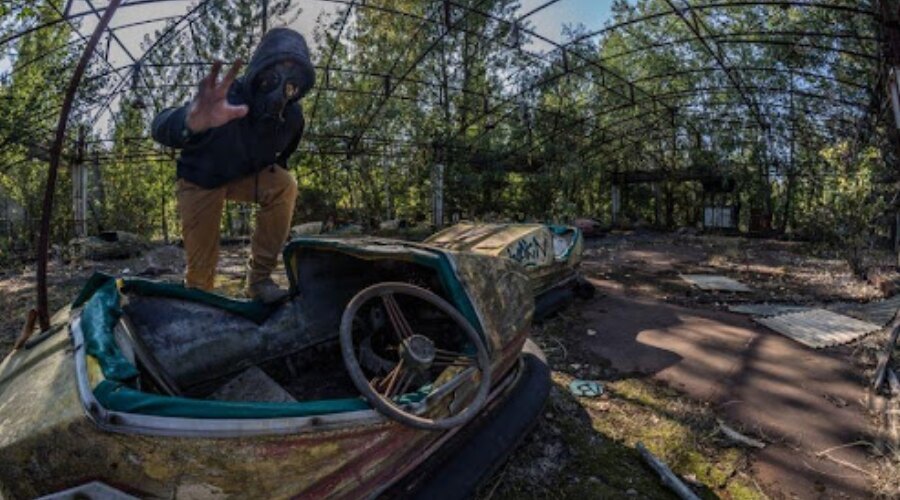
A truly well-equipped prepper does not exist for the same reason that a woman crazy about shoes never has enough shoes. You can always add a pack of noodles under that chair or stuff the bullets in the bottle inside the toilet. The people in question sometimes have a good knowledge, but this is rather an exception, as they oftentimes rely too much on their equipment and nothing else.
3. Lack of experience and skills can be replaced by equipment
Today it's mostly Americans who fall for this ideology. The key idea is that there's some sort of magical gadget which will suddenly appear in their bug-out set out of the blue and solve all the problems. As if they didn't even have to know how to layer clothing the right way, we just throw a tent on the floor and we will instantly get warm in a minute! There's no need to know any roads when I have a mobile phone and GPS. There's no need to know how to defend myself when I have 36 guns! When it comes to prepping, retailers oftentimes take advantage of the hamster-like nature of preppers who like to accumulate things and try to push them into the idea that some new piece of equipment has come up that they surely need if they want to avoid trouble (i.e. a never-ending shopping). . When it comes down to it, all these things are just tools. And tools help us solve some of the problems that would otherwise be harder to solve without them (or slower or perhaps worse efficiency). The right tools for various activities are often irreplaceable, but the tools won’t get the job done by themselves.
Let's take the tent as an example: even if you know how to set up a tent in a second, you still have to know more about things that go with it: how to choose the right place for it so that the wind doesn’t blow inside, how to prevent water from condensing, how to dig a drain around the tent,…
Even knowing how to set up a tent is a very useful skill and will require some practice. Especially at night or bad weather. GPS units are very useful too, but what will you do if they stop working? For instance when the power grid is down or when power simply doesn't work at all? (EMP) Are you even able to go back to compass and map? And what about land navigation using just the sun, stars and other methods?
A gun is the best tool for defence as well as hunting that one can get today, it rules our age. But it won’t help solve all the problems at all times. Many situations justify the use of guns for defence, but not to use lethal force anytime, anywhere. When you will draw your biggest gun at every guest, you may actually escalate the situation even if you don’t have to and provoke a needless fight.
The only way to become an all-round universal survivalist/prepper is to work on all your skills, since you never know, which one of them you will need in your struggle against the elements. Accumulating things (which you won’t be able to carry all at once anyway) will never solve the key issue - the absence of experience. A change of attitude is necessary in this matter, and this applies to all of us, as each person has slightly different gaps in his or her education and experience. It's necessary for you to know what you can expect from yourself and your equipment since a lot will depend on it.
You have to realize that bad things can easily get worse, even without warning, so think about a potential plan, what’s your plan for being left completely empty handed? Only with your 3-day bug-out backpack and survival kit. For people who rely on accumulating things will this be a major game changer. For somebody who is used to relying on primitive techniques will this be unpleasant, but definitely not critical. People who tend to accumulate stuff will have no other choice than protect their belongings. Don’t forget that even hamster needs to sleep sometimes which a group of starving people will surely like to use to their advantage to “smoke the hamster out”. Unfortunately, this will always work, as is certainly known to every owner of a medieval castle.
4. Your neighbours/friends/relatives will stand by each other in critical situation
Just think for a moment about all the complex social interactions that modern man has woven between himself and the civilization. There are a great number of families where the family is not at all cohesive and sometimes individual members even fight each other. People are able to argue about the stupidest things, (if you don’t believe, watch the show “Doomsday Preppers“) and you will find out that families or friends often struggle to reach an agreement even over the most basic topics, not to mention complex relationships which oftentimes end up in jealousy. This is what people are like – they rebel, ignore rules, disagree and leave others behind for their own reasons, emotions or under influence of various substances.
And now consider that all this will be at least five times more demanding on the human mind in a real survival situation: all that uncertainty, anger at the government and parents. The dangers of the woods and the winter, not to mention the radical change in lifestyle; these are things that would make Ghandi an alcoholic, too. Crazy people will definitely not calm down and cooperate, but will "go crazy" even more.
It would be ideal to test people under stress and pressure to see how they will react in an emergency situation. But this isn't always possible - not to mention the slight detail that if they knew about it, it would not be a real test, and if they didn’t know about it, they could get mad that you weren’t sure of them (this applies mainly to women).
How to solve this dilemma then, you ask? All in all, it's always about leadership, which also is a skill. For some people, charisma will be important. This can be slowly achieved through experience and studying; but the best way by far is through learning to control your emotions. Panic, as everybody know, is as infectious as calmness.
Learning how to make people you care about to act against their will and desires in order to achieve a greater general benefit and interest will not be easy… Also reckon with the fact that sometimes you will simply not be able to change their minds by any means. Do you have a contingency plan for this too?
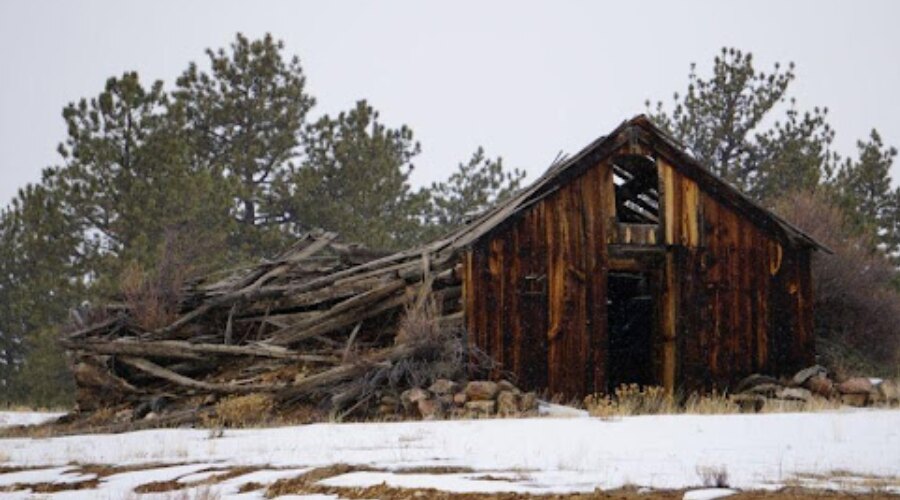
A bug-out on your own may suit a minimalistic orthodox loner who is afraid of society, but an ordinary person would go crazy from solitude after sitting around all year in the same place. Like it or not, people are social creatures, as the philosophers in ancient Greece noticed a long time ago (according to Aristotle, human is a "zóon polítikon").
5. Time for bugging-out / escape will be obvious
It’s a fact that people are very ignorant creatures and will rarely have the opportunity to see it "written on the wall" - yes, it's time to leave! That being said, you will hardly ever have time to leave in an organized manner with the minimum risk. It's a clear dilemma: you go too soon and waste time, effort, resources and other things (trust of your family), but if you linger too long, you won't be able to leave using the optimal path at all, as the road will likely be blocked by cars, so it will be a lot harder and not so comfortable (no car and a ton of food to carry).
However, there will always be that certain personal element in deciding the right time to leave, a signal after which you will admit it's time to go. The question is, how to tell that time? When will your readiness be the highest and the family best prepared? Will the risk then be low enough and acceptable? This is just one out of many questions you need to ask yourself. If you’re not a God, your abilities in these matters will be sort of poor. Mankind/people today are not able to predict stock markets, let alone bug-out.
A lot of things that pose a threat to your household, family as well as you are the same like during an evacuation (usually directed by the government, military, etc.). But leaving during evacuation is completely different than “bug-out”.
Hurricanes, floods, blizzards and similar natural phenomena are usually so large (and slow) that really everyone can be well informed about them well in advance by the media. People will have time to leave and hide somewhere. Moreover, they are usually transported, on purpose, in the direction with the least risk. This all have very predictable timing for both the evacuees as well as the government. During bug-out the situation is different, because in the equation there are practically only unknowns.
One way or the other, there is no reliable and simple indicator (a 100% one) on how to know that it is an ideal time to bug-out. Nobody will leave their home after having heard rumours from friends or relatives either. In some instances, the necessity to leave the house may be very obvious (fire, car crash, ...), in other you may have to look for broader context (drop of stocks of a certain company, record-breaking drought, ...).
Consider yourself a lucky person if you need to deal with this situation alone without a larger family. Because then the stress and emotions will be multiplied several times and the pressure will be truly outstanding. And this is when you get very easily betrayed by your instincts or good judgement.
6. Gold and silver will be the new currency after any apocalypse
A part of this myth is actually partially based on reality. And the other part is just a hope and personal wish. Both gold and silver are great as investments and experienced preppers often rely on them as an ace up their sleeve. But the idea that gold and silver will immediately become the new currency is far from certain, actually it’s likely they won’t.
On one hand, it is strange to imagine a survival scenario, at least short or medium in length, where things would be so bad that the classic green money would become invalid and continue to serve as a fire starter. On the other hand, why would people want some glittering piece of metal then? Especially in a situation where food and supplies would keep you alive almost certainly, while gold and silver wouldn’t really help you much (who and why would accept it instead of things on a barter like a small first aid kit or lighter?) Why would you put yourself in disadvantage for gold, if you could choose food or other resources instead? Yes, gold and silver (and other precious metals) have been a symbol of wealth in virtually every culture. And yes, there are often people among us so morbidly obsessed with property that they would sell their last food can for money, but that again will be an exception.
But here we are again - none of this technologically guarantees why anyone with a sane mind would do it. What would you choose if you were hungry? A chicken or a piece of gold? Accumulating precious metals and valuables excessively is nothing but a habit which a decent survivalist shouldn’t waste time with. Sure, even he can sometimes use a piece of gold to bribe a clerk for example, but will people automatically accept it everywhere? This idea is ridiculous and illogical!
clothes for every season, drugs and first aid kits, backpacks, hunting equipment, mushroom guide, food, cattle, farm,… Gold has never been and never will be the only universally accepted commodity!

Did you ever think about what's an average prepper afraid of? I will give you a hint, no, it's not a nuclear war, not the mad cow disease, economic crisis or even a local war. Yes, unfortunately it’s really so, most preppers are afraid of the one thing: that when it really happens, they will not have enough supplies, which will throw them into the next round of paranoid shopping.
7. If you are severely dehydrated, you can drink urine
If there is one really idiotic myth from the realm of survival and prepping, it has to be this one. A good number of professionals as well as laymen still think it's a good back-up strategy when you end up thirsty with no water at sight.
For this “enlightenment” we can probably thank a number of third-class TV channels as well as lousy survival shows. No matter how often you demystify this, this myth will always make it back with even more force.
The logic behind this act goes something like this: when you have absolutely no water or other fluids and are dehydrated on the verge of death (because who would otherwise drink urine voluntarily, right?), there is an opinion that you can use your warm urine as a bridging gulp of water, before you get to a proper water source elsewhere. People obviously believe in this nonsense because urine is mostly composed of water and, likewise, the kidneys will filter that slurry out of you again (as they have already done successfully once - and believe us, they had a damn good reason for that!).
But anyone with just a basic knowledge of human biology must know that this thing is a lie and a very disgusting one. Let's look at this scenario: you are in a situation where you are a lone survivor of something really terrible and after you have exhausted all water supplies around, you come to the conclusion that you will drink urine. But what you do here is as useless as drinking seawater. By drinking your urine you re-introduce all the toxins your body has already gotten rid of back to your system, so it will have to get rid of them once more making you even more dehydrated.
Your body will already be in a rather miserable condition, stressed out, perhaps sick and injured. And then the stress from the purification of urine may quite possibly start a chain of reactions in your body that will lead to death. An organ that's working and generating heat needs water that you do not have, so you cannot lose it or use it. It's a dead end, one way or another, it will only make your situation more miserable.
Don’t fall for this myth! Nevertheless, it is worth remembering that survivalists can sometimes actually make good use of urine: both as a disinfectant when nothing else is at hand or as a coolant, which you put on a scarf or, following the example of some tribes, to moisten the place where you bed down.
8. You’ll be better off on your own
Many people envision themselves as lone pilgrims on their way through the wilderness, fearless, well-armed with eight pistols and ten rifles, who will certainly become the last survivors. A survivor who is skilful enough, shrewd and equipped to outsmart everybody else. Moreover, he will be good enough to survive even the end of the world.
This mythical being doesn’t need fellow men and women. Other people slow them down, attract too much attention and are basically nothing but another mouth to feed. Such people often think and say: “I’ll be better off on my own.”
Unfortunately, people don’t work this way. Humans are social beings and as such they work best in a team/unit. And it's never more true than when there's a big problem. Other people will make work much easier, more effective and you’ll be able to do more work as well as have more eyes and ears on your land. Just like more brains for problem solving.
Even just a couple of people, you and someone else, can already watch each other's backs, watch over one another when you sleep, find out more about this sector and also help carry something too heavy for one person. As well as help with countless other activities. A lone prepper or survivalist may not be able to gather enough resources when being ill, injured, or malnourished (or all of the above at once). Without the help of others, you won’t be able carry a larger catch (anything larger than a roe deer) and may struggle to survive the first winter.
On the other hand, it is also true that more people usually mean more trouble, which includes - higher food consumption, making more noise, which might give you away especially during hunt, personal fights, … But the pros in this category radically outweigh the cons. Especially when it comes to safety and security. A lone wolf easily becomes a victim of a gang, especially when he is forced to be static (fields, animals, …).
You may be the fastest hand in the East and a world kickboxing champion, but life is not a movie script. The statistics are simply merciless, because the most probable course of action is that on your own you won’t survive the first encounter with a larger aggressive group. Not to mention that you’ll need to sleep sometimes.
But if you are really end up in the lone wolf mode (whether on purpose or you’ll be forced to do so), you will have to operate on high alert at all times: you won’t be able to afford to make even the slightest mistake in your techniques and actions. Life often does not give a second chance, which is good to realize… Even a broken arm can get you killed when you're alone.
9. Eating food before its expiration date is always safe
Not many preppers have ever really thought about this fundamental idea! So, is the right answer “yes”, “no” or “maybe”? This question is a real hard nut to crack, since very few manufacturers do such testing. And if they do, it's really just a handful of them. And yes, it is a problem and a big one. Since such a bad can can cause two things: you can vomit all night long (which is the better case), or you just simply die. Another problem is that you won’t have anything to eat.
So what should you do? How long will your favourite food you have in your stash last? Are the MRE's really good 30 years later? Will a can of pea last longer than a particular manufacturer says? And does this vegetable have the same supplier for the whole batch and will it last the same amount of time? When we look at it realistically, you have basically three options when it comes to long-term storage of food.
- Rotate everything on a regular basis. Make sure the food you eat is fresh, the fresher the better. Of course, these should be the foods you eat normally, not just cheap stuff, because otherwise you will not rotate the foods in the intervals you should, instead you will rotate them based on your family’s preferences.
- You will rely on the expiration date and hope that the producer of the food stuff knew what he was doing. But experience has shown that people have seen food that had been packaged in ideal climatic conditions and yet has not survived the minimum shelf life, as well as food that have exceeded it significantly.
- You can invest in some food that is guaranteed to have the longest shelf life: MRE's especially, dry beans, rice, flour, honey, sugar, nuts and seeds, … This is not an ideal choice for everyone, but everyone will agree that you want the food you eat or give to your children to be as fresh as possible.
You should definitely run a few tests on this yourself, otherwise you will never be 100% sure. Try to buy a few cans of some food and open them after a while and see what happens. Over time, you will find that some brands are really better at durability than others, but there’s one slight issue - the only person you can trust to find out and verify these things is you!
RECOMMENDED PRODUCTS
10. Hygiene is for the weak, don’t waste space on hygienic things
This idea is obviously wrong. It’s the other way around. Hygiene is one of the pillars of civilization, as it is hygiene that has had a positive impact on reducing the spread of diseases (and other parasites who literally drink blood so you don't get much sleep, like when you're in the woods without a mosquito net). Like other mammals - without frequent care, humans would become a stinking lump soaked with parasites and prone to the slightest disease.
In 2022 we probably don't need to remind you that everything, from dermatitis, to diarrhoea, to scabies and fleas, will be happy to set up a camp on you when they feel your unwashed human body. And diarrhoea is the number one sickness caused by unwashed hands and poor hygiene in general. An already bad situation will become literally critical for a survivalist due to a similar disease. The body will start to slowly lose electrolytes, which might not be possible to replenish without dripfeed.
On the other hand, I would like to stress out that you don’t need to carry on you the whole barber's cabinet and bathtub. You need only basic things to keep yourself in an optimal condition together with your body and immune system. At least a toothbrush, an interdental brush, toilet hygienic wipes, baby towels, deodorant or a pinch of baby powder will suffice. You may also add a bit of shampoo and a piece of cloth for washing. If need be, you may include women’s stuff. All the above things will keep you and your surroundings in the normal civilized mode for a long period of time. It’s no coincidence that you feel brand new after a good wash. And it works for the people around you too. Many people won’t smell their own bodily odour, but will smell others more than well.
There’s no need to overdo hygiene, if you aren’t stitching up an injury at that moment, etc., but it’s definitely not something you should completely underestimate!
Readers are further interested






































































































































